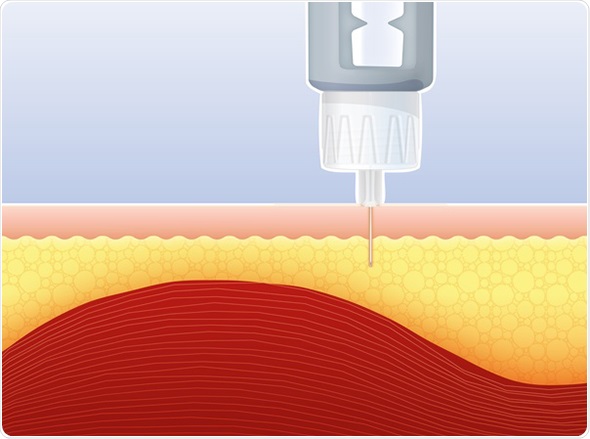Apr 10 2015
A recent study by Grassi et al. has concluded that blood glucose control in diabetes patients who inject insulin can be improved through better injection technique, which includes switching patients to 4 mm pen needles.

The results found that injection technique education not only improved blood glucose control, but also provided greater satisfaction with therapy and lowered the daily consumption of insulin after only three months - a relatively short period of time. These positive outcomes are important because they can contribute to better therapy adherence and, if sustained, improved long-term clinical outcomes, as well as cost and efficiency savings in diabetes care.
According to the study authors, most physician visits with insulin-injecting patients involve discussions about glucose control and dose adjustment, but very little time is spent on improving injection technique . The study therefore focused on a multimodal intervention, including injection technique training and needle length shortening to show how these can have an impact on diabetes management.
Results indicated that a significant number of patients began to recognise the importance of good injection technique. Patients were found to be performing their injections more correctly, with most having abandoned the skin fold technique when using 4mm pen needles. The use of 4mm pen needles has been proven to be applicable for insulin therapy in adults, regardless of their BMI , as well as children and young people , as it ensures reliable delivery of insulin into the subcutaneous layer without the risk of intramuscular injection. Patients have reported a less painful injection experience with a 4mm pen needle , which can therefore improve psychological comfort and quality of life.
A number of other clinical trials evaluating different needles lengths and gauges have previously also shown the advantages of shorter, finer-gauge needles over longer ones , , but such studies have never shown an improvement in glucose control. Grassi et al. is therefore the first published study to show that glucose control can be improved from better injection technique.
Dr Kenneth Strauss, Director of Safety in Medicine, European Medical Association, Global Medical Director, BD, and one of the study authors, comments:
The implications of the Grassi et al. study are striking. Patients and professionals do not have to wait for months and years to see improvement in the most important clinical parameters (blood glucose control and insulin reduction) when appropriate injection training and devices are provided.
These improvements can be expected early enough in the course of insulin therapy to enhance patient motivation towards continuous improvement From the results of this study, it is clear that the implementation of a multimodal approach, including injection technique education and using BD 4mm pen needles can make a significant impact.
Not only does it improve glucose control, but patients were able to lower their consumption of insulin and learn better injection practices, making diabetes management simpler and improving quality of life
After initial assessment, each patient was begun on the BD 4 mm 32G pen needle and was taught the correct way to inject. Patients were subsequently evaluated again after three months to assess their technique, the state of their injection sites and their psychological reaction to and clinical impact of the 4mm pen needle.
By the end of the study, a majority of patients showed an improved understanding of injecting devices, the care and maintenance of injection sites, the means of avoiding complications such as lipohypertrophy and the necessity of rotating injection sites.
Source:
Journal of Clinical & Translational Endocrinology